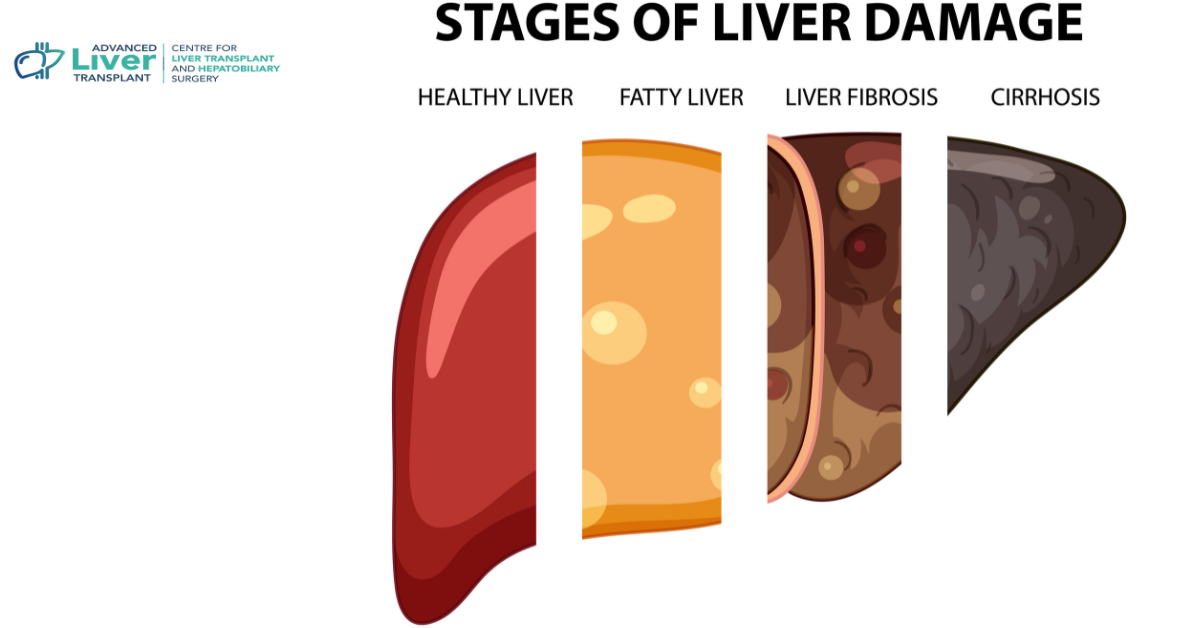When Is a Liver Transplant the Only Option? Understanding End-Stage Liver Disease
When liver disease progresses to a point where the organ can no longer function properly, a liver transplant may become the only life-saving option. For patients battling severe liver damage, timely intervention from a liver specialist in Indore can make all the difference between recovery and life-threatening complications. Understanding the signs and stages leading to end-stage liver disease helps patients make informed choices about their treatment.
What Is End-Stage Liver Disease
End-stage liver disease (ESLD) occurs when the liver is severely scarred and unable to perform its essential functions, such as detoxification, metabolism, and protein synthesis. This condition is often the final phase of chronic liver illnesses, including cirrhosis, hepatitis B or C, fatty liver disease, and autoimmune liver disorders.
When medications and lifestyle modifications fail to manage symptoms, liver transplant surgery becomes the definitive treatment. A transplant replaces the damaged liver with a healthy donor organ, restoring normal function and giving patients a new lease on life.
Common Causes Leading to Liver Transplantation
Several underlying conditions can progress to end-stage liver disease, making transplantation necessary:
Chronic Hepatitis B and C: Persistent viral infections gradually damage liver cells.
Alcoholic Liver Disease: Long-term alcohol abuse is a leading cause of cirrhosis.
Non-Alcoholic Fatty Liver Disease (NAFLD): Associated with obesity and diabetes, it can silently lead to liver failure.
Autoimmune Hepatitis: The immune system mistakenly attacks healthy liver tissue.
Genetic Disorders: Conditions like Wilson’s disease or hemochromatosis can cause irreversible damage.
Early consultation with a liver specialist in Indore can help identify these issues before they reach the transplant stage.
Signs You May Need a Liver Transplant
Recognizing symptoms of advanced liver disease is crucial. Patients may experience:
Persistent jaundice (yellowing of skin and eyes)
Abdominal swelling due to fluid buildup (ascites)
Chronic fatigue and weakness
Confusion or memory problems (hepatic encephalopathy)
Unexplained bleeding or bruising
When these symptoms worsen despite medical treatment, it’s time to discuss the possibility of liver transplant surgery in Indore with an experienced transplant team.
The Importance of Early Diagnosis and Specialist Care
Timely evaluation and management by a specialist are key to preventing irreversible liver damage. Specialists use advanced diagnostic tools such as liver function tests, imaging, and biopsy to assess the severity of the disease. With early detection, many liver conditions can be managed without surgery. However, once end-stage liver disease sets in, a transplant remains the only curative option.
A liver transplant is often the last and most effective treatment for patients with end-stage liver disease. If you or a loved one shows symptoms of severe liver dysfunction, seeking care from a specialist can help determine the best course of action.
When Is a Liver Transplant the Only Option? Understanding End-Stage Liver Disease
When liver disease progresses to a point where the organ can no longer function properly, a liver transplant may become the only life-saving option. For patients battling severe liver damage, timely intervention from a liver specialist in Indore can make all the difference between recovery and life-threatening complications. Understanding the signs and stages leading to end-stage liver disease helps patients make informed choices about their treatment.
What Is End-Stage Liver Disease
End-stage liver disease (ESLD) occurs when the liver is severely scarred and unable to perform its essential functions, such as detoxification, metabolism, and protein synthesis. This condition is often the final phase of chronic liver illnesses, including cirrhosis, hepatitis B or C, fatty liver disease, and autoimmune liver disorders.
When medications and lifestyle modifications fail to manage symptoms, liver transplant surgery becomes the definitive treatment. A transplant replaces the damaged liver with a healthy donor organ, restoring normal function and giving patients a new lease on life.
Common Causes Leading to Liver Transplantation
Several underlying conditions can progress to end-stage liver disease, making transplantation necessary:
Chronic Hepatitis B and C: Persistent viral infections gradually damage liver cells.
Alcoholic Liver Disease: Long-term alcohol abuse is a leading cause of cirrhosis.
Non-Alcoholic Fatty Liver Disease (NAFLD): Associated with obesity and diabetes, it can silently lead to liver failure.
Autoimmune Hepatitis: The immune system mistakenly attacks healthy liver tissue.
Genetic Disorders: Conditions like Wilson’s disease or hemochromatosis can cause irreversible damage.
Early consultation with a liver specialist in Indore can help identify these issues before they reach the transplant stage.
Signs You May Need a Liver Transplant
Recognizing symptoms of advanced liver disease is crucial. Patients may experience:
Persistent jaundice (yellowing of skin and eyes)
Abdominal swelling due to fluid buildup (ascites)
Chronic fatigue and weakness
Confusion or memory problems (hepatic encephalopathy)
Unexplained bleeding or bruising
When these symptoms worsen despite medical treatment, it’s time to discuss the possibility of liver transplant surgery in Indore with an experienced transplant team.
The Importance of Early Diagnosis and Specialist Care
Timely evaluation and management by a specialist are key to preventing irreversible liver damage. Specialists use advanced diagnostic tools such as liver function tests, imaging, and biopsy to assess the severity of the disease. With early detection, many liver conditions can be managed without surgery. However, once end-stage liver disease sets in, a transplant remains the only curative option.
A liver transplant is often the last and most effective treatment for patients with end-stage liver disease. If you or a loved one shows symptoms of severe liver dysfunction, seeking care from a specialist can help determine the best course of action.









